
Retail businesses need a POS system that goes beyond ringing up sales and accepting payments. A good POS system has robust inventory management tools, omnichannel sales, streamlined customer relationship management (CRM) features, employee management, and reports that help in business decisions.
Alongside pricing, there are some important features that set apart the best retail POS software on the market. The table below illustrates which of the top five retail POS systems include these key features.
| Our rating (out of 5) | Starting price | Processing fee* | Mobility** | Cloud-based | |
|---|---|---|---|---|---|
| Square for Retail | 4.66 | $0 | 2.5%–2.6% + $0.10 | Yes | Yes |
| Shopify POS | 4.48 | $5 | 2.4%–2.7% + $0.10 | Yes | Yes |
| Hike POS | 4.28 | $69 | Varies | Yes | Yes |
| Clover | 4.14 | $14.95 | Varies | Yes | Yes |
| Lightspeed Retail | 4.08 | $89 | 2.6% + $0.10 | Yes | Yes |
| * For card-present transactions ** Mobile apps and readers for selling across the sales floor, events, curbside, etc. |
|||||
Our rating: 4.66 out of 5
Square for Retail is specialty POS software from Square’s large ecosystem of POS solutions. Similar to all of Square’s free options, the Square for Retail entry plan includes all the features you need to run a retail business. Square can fully support small industries such as startups and small businesses as well as larger multi-location and omnichannel businesses.
Square for Retail is the only POS out of the dozens I have evaluated that gives you all that you need to accept payments in-person and online, manage inventory and employees, and build an e-commerce store for free.
What’s even better is that Square for Retail has plans catered to your business as it grows, too. And if you are ready for more specialty features, you can easily get Square’s add-ons for tools like loyalty programs, invoicing, team management, and more.
Square for Retail has three subscription plans:
*There is a free 30-day trial on the Plus plan.
Square POS is locked in with Square Payments as a payment processor. Here are its fees:
Custom rates are available if you process more than $250,000 annually.
Square hardware options:
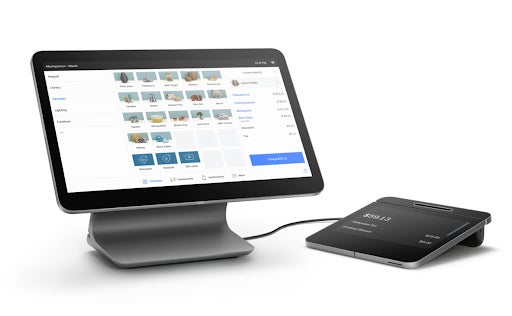
| Pros | Cons |
|---|---|
|
|
Our rating: 4.48 out of 5

Shopify POS is an excellent choice for retailers that either already use Shopify for their e-commerce stores or are looking to sell online and in person. You can choose either the standalone Shopify POS, which comes with a very basic online store, or leverage Shopify’s e-commerce solution with Shopify POS for a seamless and powerful omnichannel setup.
Shopify is widely known for its best-in-class e-commerce platform and is primarily known for online selling. However, Shopify POS is equally impressive. I like its customizable checkout interface, its newest hardware options (POS Go, an all-in-one mobile POS, and barcode scanner), and, most importantly, its comprehensive omnichannel selling features.
Curbside pickup, ship from store, returns, and multi-location inventory tracking are all effortless, thanks to the integration of Shopify POS with the Shopify e-commerce platform.
Shopify POS offers two subscriptions:
Shopify also offers e-commerce plans that include the POS Lite for free. Add a POS Pro for $89 per month per location.
*Shopify offers a three-day free trial plus the first month for $1 across all plans.
Shopify’s payment processing fees vary based on the plan:
Shopify POS hardware options:
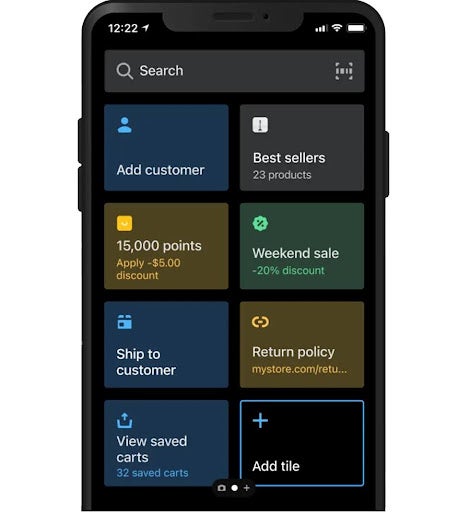
| Pros | Cons |
|---|---|
|
|
Our rating: 4.13 out of 5

Hike POS offers excellent inventory and order management features, customized reports, and employee management tools that can easily rival popular retail POS solutions. It also gives you flexibility over which payment processor you can use for your business.
Hike comes with a mobile app that is highly rated by real-world users, making it an ideal choice for sales at mobile events if you don’t have hardware. I also like that it has its own free inventory scanner app you can use for stock inventory.
While you need to upgrade your Hike subscription to unlock online sales, I’m still impressed that Hike doesn’t charge any transaction fees for going with your preferred payment providers, unlike Shopify, which charges nearly 2%, and Square, which is exclusive to Square Payments.
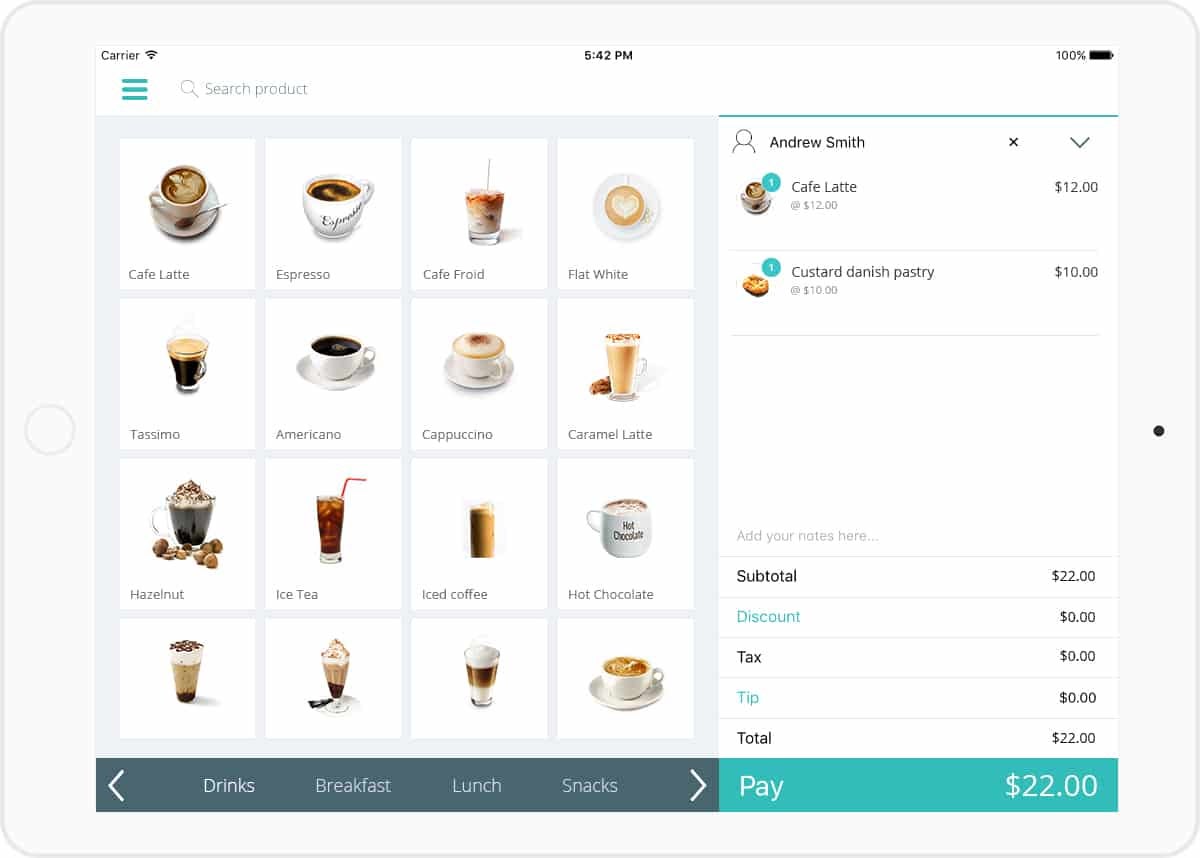
| Pros | Cons |
|---|---|
|
|
Our rating: 4.14 out of 5

Clover is a cloud POS system owned by the payment network Fiserv. Any merchant services provider operating on the Fiserv network can sell the Clover POS with its merchant services software built in. This allows you to choose your preferred payment provider and still go with Clover’s POS and its proprietary hardware.
Clover bundles its hardware and software to give you a retail-specific POS system. You can buy the system straight from Clover or through any of the merchant providers in the Fiserv network. Its industry-grade POS hardware is designed to be light, mobile, and communicate via cellular LTE signals or WiFi.
Clover has three subscription plans:
*Software fees are the same throughout the locations where Clover is purchased.
Transaction fees:
*The above-mentioned fees are reflected on Clover’s website as of this writing, but fees will vary based on where you purchase your Clover POS hardware.
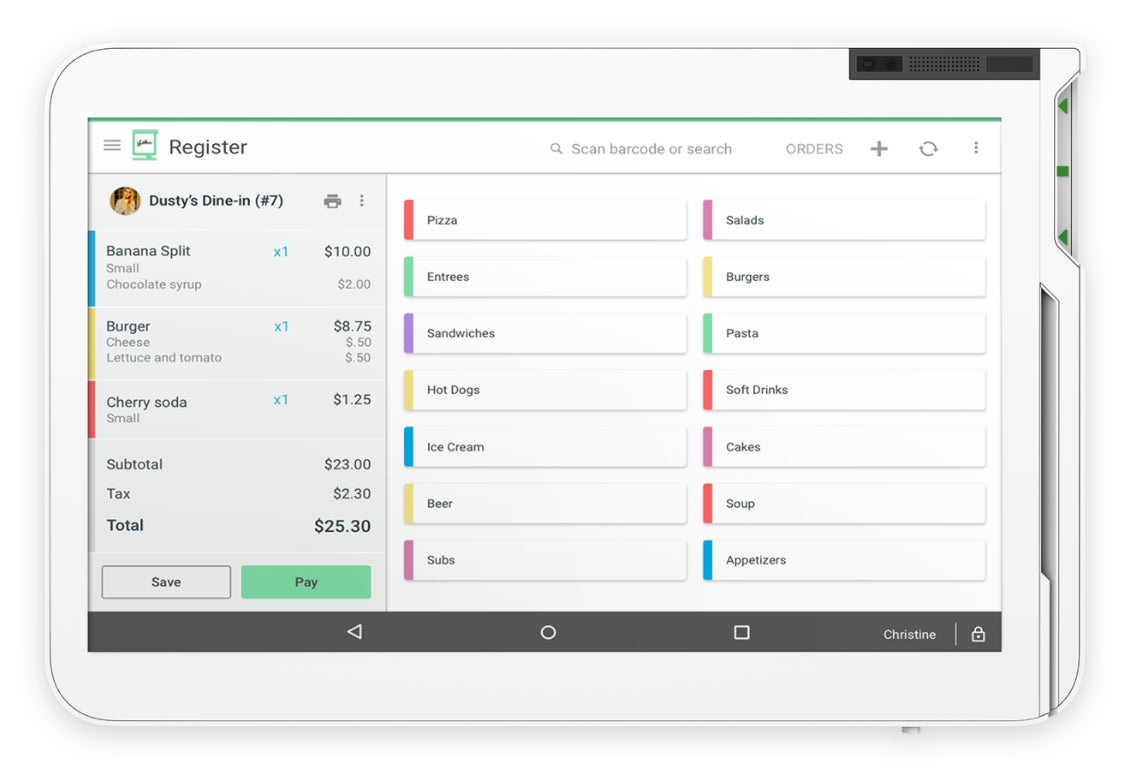
| Pros | Cons |
|---|---|
|
|
Our rating: 4.08 out of 5

Lightspeed Retail is one of the best retail POS systems because of its sophisticated and top-of-the-line inventory tools and in-depth analytic reports. It has more than 40 sales and inventory reports, with built-in e-commerce and loyalty programs.
Lightspeed Retail allows retailers to manage purchase orders with a built-in catalog and create product bundles and multiple variants. Its inventory tool has a forecasting tool that helps anticipate inventory needs and predict shopping trends, which is what I like about the software. Its reports come with actionable insights that help you make decisions about your business.
Lightspeed Retail gives you three subscription options:
Payment processing fees:
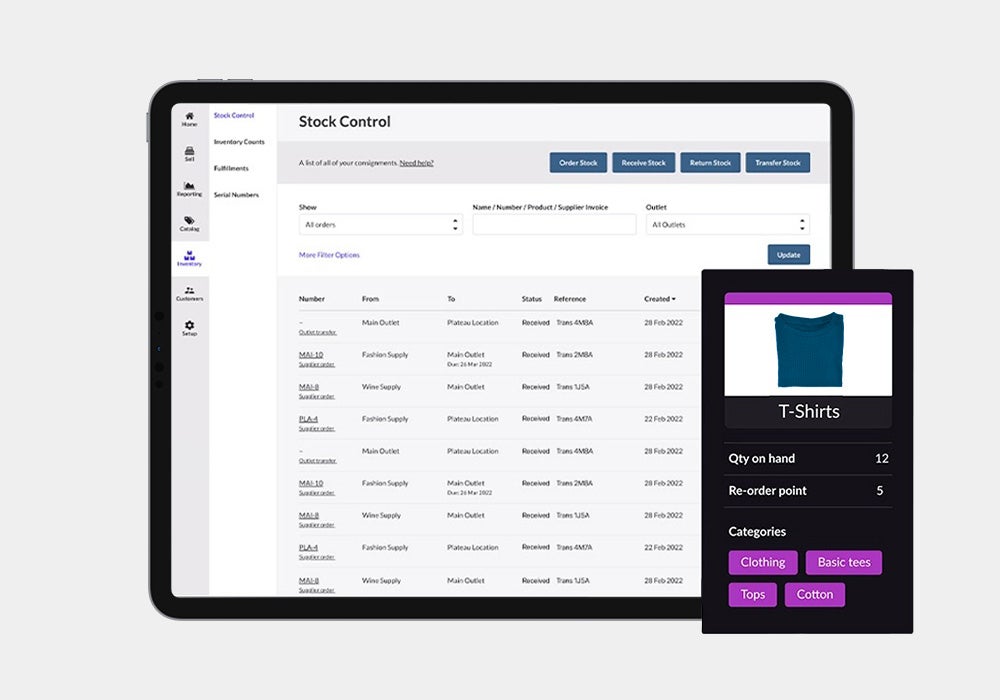
| Pros | Cons |
|---|---|
|
|
A retail POS system is the central hub for your retail business. It doesn’t just process sales and accept payments. Look for a retail POS system that can help manage inventory, oversee employees, and help build a customer base with loyalty and marketing efforts. Consider also one that can collect data to gather reports that help you in purchasing and staffing decisions.
I evaluated dozens of point-of-sale systems and scored them using our in-house rubric of 20 data points with the following categories — pricing, software features, hardware, installation and security, and user reviews. I prioritized POS systems that are based in the cloud but offer offline mode (hybrid), are reliable, easy to use, and provide features that support business growth.
This article and methodology were reviewed by our retail expert, Meaghan Brophy.